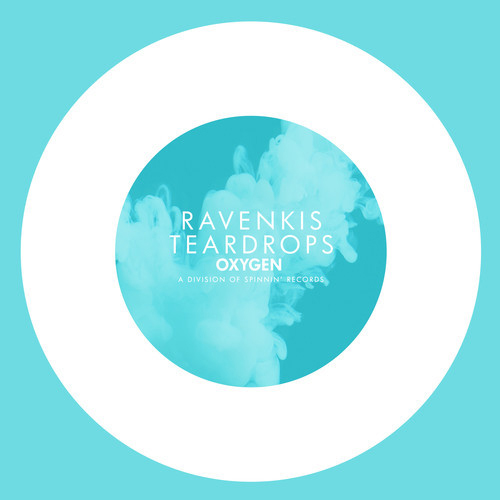-
 play_arrow
play_arrow
Clubalicious Clubalicious Radio
-
 play_arrow
play_arrow
London Calling Podcast Yana Bolder

New York, NY (December 27, 2024)—Live event and tour production may be a bustling, perpetually growing industry, but being a part of that success can come at a price. The crews that provide sound for everything from high-profile concerts to local corporate events know the list of demands all too well: long hours, high stress, extended periods away from home and loved ones, job insecurity and more. Any one of those issues can be difficult to handle on its own, but mix them all together and then try to deal with them while on the road, and the results can be combustible, potentially leading to depression, addiction or worse.
The CDC reports the suicide rate for “musicians, singers and related workers”—among them, audio professionals—as nearly 139 per 100,000 people; another potentially inclusive group—“Entertainers and performers, sports and related workers”—comes in at an alarming 114.5. Both numbers are far higher than the national average (32) across all occupations. Getting more specific to the touring world, the Tour Health Research Initiative’s Touring Health and Wellness Survey 2020 queried 1,154 international touring artists and crew members just before the pandemic and found 254 participants to be at high risk for clinical depression, and 200 scoring high for suicidality. Including artists or not, the numbers confirm something that’s been well-known in Live Sound all along: Working in production can potentially wreak havoc on your mental health.
THE SHOW MUST GO ON
“It is such a tough industry to work in and the things that make it stressful are not going to change,” said Lori Rubinstein, executive director of the Behind The Scenes Foundation, a non-profit support charity. Founded in 2005, BTS issues Basic Needs and Counseling financial grants to entertainment technology professionals, and maintains the BTS Mental Health Initiative, providing tools, webinars and resources to industry workers on topics like addiction, workplace bullying and more.
“That curtain always goes up at eight o’clock every night, right?” said Rubinstein. “Not much you can do about that. Could the tours be a little saner in terms of hours? Sure, but we all know that’s a money thing, and it’s probably not going to change anytime soon. The question becomes: How can people get more support for their mental health, for their wellbeing, that helps them cope with all those stressors and still be productive and sane members of their profession?”
One of the biggest hurdles to providing support is the industry’s longstanding reluctance to openly discuss mental health. “If we’re only talking about it behind closed doors, then we’re actually not allowing it to be an open conversation that’s going to engage as many people as possible,” said Suzi Meyer, campus general manager of Rock Lititz. The 150-acre production campus in Lititz, PA is dedicated to the live event industry with rehearsal studios and multi-tenant office/warehouse facilities housing production vendors. Over its 10-year history, Rock Lititz has hosted thousands of touring and event professionals, giving Meyer, who has a master’s degree in counseling, a keen insight into the road production mindset.
“There’s still some thinking of ‘If I discuss this, I’m going to have a black mark on my record that I’m struggling with anxiety and depression,’ so just getting people to talk openly about mental health can be a challenge,” said Meyer. “I don’t know if there’s easy answers in our industry, but we should be talking about it to try and make sure we’re at least putting proper supports in place to catch people.”
While the pandemic was traumatic for the live sound industry, with most pros unexpectedly thrown out of work until it subsided, it had one surprising positive result in that it made discussing mental health more acceptable in the production community. Meyer notes that in the past, Rock Lititz had provided training sessions on stress management and conflict resolution for its campus workers, but the mental health programming needed development.
“Before the pandemic, we had signs around that said it’s okay to talk about your feelings, because some of us on the Rock Lititz team were meeting with the Human Resources team at [tour vendors] Tait or Atomic or Pyrotek, and hearing that mental health was something that was coming up again and again,” said Meyer. “The pandemic just accelerated the need to look at what areas of mental health did we really want to focus on. Now, to be quite honest, in the past year or two, there’s been a change in what people want out of their work life—they want to be able to have a life outside of work! I think that the pandemic caused people to prioritize differently, and mental health is part of that prioritization.”
THERAPY SLOG
For many, seeing a therapist is a key part of maintaining mental health, but finding one that understands the touring world can be a challenge. Behind The Scenes addressed that issue by creating an Entertainment Industry Therapist Finder on its website because, Rubinstein explained, “People get frustrated—they don’t want to spend their time or money educating a therapist, or they walk in and get asked, ‘What stars have you worked with? Can you get me tickets for the concert?’ The two criteria for therapists in the Finder are either they’ve already had entertainment industry professionals as clients, or they used to work in entertainment themselves. Much to our surprise, we discovered that the mental health field is a popular second career for people from the entertainment industry.”

That was the case for Lucy Heyman; previously a U.K. tour manager for acts like classical crossover artist Alfie Boe, she later earned an MSc in Performance Science from the Royal College of Music and published original research on the health and wellbeing experiences of artists in popular music. That led to teaming up with U.K. music journalist Rhian Jones to co-write Sound Advice: The Ultimate Guide to a Healthy and Successful Career in Music (Shoreditch Press). The book’s new second edition takes an international approach to providing musicians and crews with tools and techniques for addressing mental and physical health problems at all points of their careers, including while on the road.
“The importance of knowing yourself and knowing what you need in order to thrive or have a successful tour is so crucial,” said Heyman. “I’d really encourage all touring professionals to check in with themselves—what are their weak points and the warning signs of those weak points—and then communicate them to their team. That means saying, ‘I might go down at some point, and this is how it’s going to look. Maybe I might start withdrawing; if that happens, please come up to me and say, ‘Listen, you told us to check in with you if we see something.’ Have this chat before the stress of the tour has started and acknowledge we all have weak points, what’s yours, and do we have permission to ask ‘how can we help?’ Clear communication in advance encourages others to be open about whatever they might be struggling with and it creates a better culture.”
Jones added, however, “The flip side of that is also being aware that if you notice someone struggling, what are your own limitations in supporting that person? Perhaps you can ask them how they are and open a conversation, but then where does it stop for you to make sure that you’re looking after yourself? And is there a point where you’re going to need to hand them over to someone else or a service?”
The book also explores other ways to take care of yourself on the road—realistically looking at touring dietary and sleeping habits, exercising while on the move, approaches to drinking in moderation and more—as well as how to recover after coming home, when adjusting to the real world and reconnecting with loved ones can be a whole new struggle.
INTO THE LIGHT
While the pandemic made it somewhat more acceptable to talk about mental health in the touring workplace, it may ultimately be a generational change that brings the topic fully into the light.
“For the first time, we have five generations of employees in the workforce, and with each one, there’s different struggles and anxieties and impacts,” said Rock Lititz’s Meyer. “We’ve been doing ‘next generation’ focus groups on campus, because we’re trying to keep people in the industry. Much of our workforce is looking to retire in the next six years; we want to keep younger people working in live events, so we’re asking questions. One thing that’s interesting is the next generation, Gen Z, is more willing to talk about its mental health. There is an awareness and an expectation in the younger generation that taking care of your well-being is just part of how you do business.”
Answering that expectation is a growing number of mental health resources for production pros at all levels and they, along with changing views within the workforce, will help shape the industry in the future. “It’s a very tough issue,” said Behind The Scenes’ Rubinstein, “but it has to happen both from the ground up and the top down in terms of willingness to change the attitude in the industry and reduce the stigma around mental health.”
| RESOURCES |
| National Suicide Hotline: • Call 988 Behind The Scenes: • www.btshelp.org Tour Health Research Initiative: • www.tourhealth.org ACM Lifting Lives: • www.acmlifitinglives.com The Roadie Clinic: • www.theroadieclinic.com Eccho Live: • www.touringcareerworkshop.com |
Written by: Admin
Similar posts
Recent Posts
- 🎶 New Music: JID, OneRepublic, Morgan Wallen, Post Malone, MarkCutz, Kidd Spin + More!
- Classic Tracks: The Fireballs’ “Sugar Shack”
- Classic Tracks: Arlo Guthrie’s “City of New Orleans”
- Classic Track: k.d. lang’s “Constant Craving”
- Classic Tracks: Waylon Jennings’ “Are You Sure Hank Done It This Way”
Recent Comments
No comments to show.Featured post

Latest posts

🎶 New Music: JID, OneRepublic, Morgan Wallen, Post Malone, MarkCutz, Kidd Spin + More!

Classic Tracks: The Fireballs’ “Sugar Shack”

Classic Tracks: Arlo Guthrie’s “City of New Orleans”

Classic Track: k.d. lang’s “Constant Craving”

Classic Tracks: Waylon Jennings’ “Are You Sure Hank Done It This Way”
Current show

Uplifting Only
Ori Uplift
Abora has enjoyed success in the broader EDM music world too: Since 2012, Abora has won the Future Favorite on Armin van Buuren's A State of Trance 13 times, more than any label except Armin's Armada itself.
closeUpcoming shows

Fresh Is Fresh
This Weeks Hottest Releases
11:00 - 16:00
Sugar Radio
Robin Schulz
16:00 - 17:00
Swedish Dance Chart
17:00 - 19:00

Global Sessions
By Tom Cuffia
19:00 - 20:00
Made To Move
Jacob Colon
20:00 - 21:00Chart
Powered by Dee jay promotions visit us







 Invalid license, for more info click here
Invalid license, for more info click here